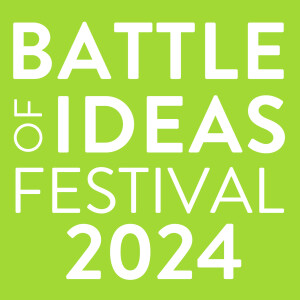
Tuesday Jan 21, 2025
Are the arts being expelled from education?
Recorded at the Battle of Ideas festival 2024 on Sunday 20 October at Church House, Westminster.
ORIGINAL INTRODUCTION
A recent report from the Cultural Learning Alliance (CLA) gives proof of a trend we all knew was there – cultural education in the UK is in steep decline. Confirming received wisdom that arts education has suffered since austerity, the report reveals a deliberate de-prioritising of the arts in England’s state schools since the arts-free English Baccalaureate was introduced in 2010. Since then, creative GCSEs, the number of arts teachers and the hours they teach have all been in steep decline.
The impression of official disdain for the arts is further cemented at university level. In 2021, funding for creative courses was halved to ‘target taxpayers’ money’ toward ‘science, technology and engineering’. In 2024 alone, several universities, including Goldsmiths, Queen Mary University of London and the University of Surrey, have announced major cuts to their arts departments.
Many arguments against this decline focus on social concerns – the CLA report highlights a stark increase in the gap between wealthier and poorer students’ engagement in the arts. Likewise, defenders of the arts highlight how children benefit in terms of transferrable skills and mental wellbeing. Participation in the arts at school increases the chances of low-income students getting a degree, volunteering, and voting, they argue. They also draw links to improved reading and maths scores – and even better health.
Within the creative industries, concerns are expressed about reduced opportunities leading to a shrinking future generations of artists, a reduction in the diversity and quality of creative output and a reinforcing of the idea that the arts are only for the middle-classes. Arguing that the creative sector is one of the UK’s major exports, many are also worried that reduced competitiveness would be of economic concern. It doesn’t have to be this way – some of the world’s best arts education programmes are based in poorer, often authoritarian countries and yet produce some of today’s biggest names. Conductor Gustavo Dudamel trained in Venezuela’s much-imitated El Sistema programme; Royal Ballet director Carlos Acosta CBE at the renowned Cuban National Ballet School. China’s conservatories have produced numerous world-famous musicians. Can we learn from these countries’ decision to prioritise arts funding amid economic and political challenges?
Are these even the right ways to value education in the arts? Or do such arguments imply that an arts education exists solely to facilitate social or economic ends? Schools are asked to prepare pupils for an uncertain economic future while navigating time and budget constraints. Against this backdrop, is it possible to justify dedicating scarce resources to the arts, which many deem ‘non-essential’? Is an instrumental approach the only way to save the arts, or is it time to reignite the case for art for art’s sake?
SPEAKERS
Dr Oliver Doyle
musicologist and lecturer
Manick Govinda
independent writer, commentator, mentor/arts adviser and curator
Dr Lola Salem
lecturer in French and music, University of Oxford; author; professional singer, Maîtrise de Radio France; critic
Gabriella Swallow
award-winning cellist
CHAIR
Eleanor Kavanagh-Brown
event producer, Academy of Ideas; musician; trustee
No comments yet. Be the first to say something!